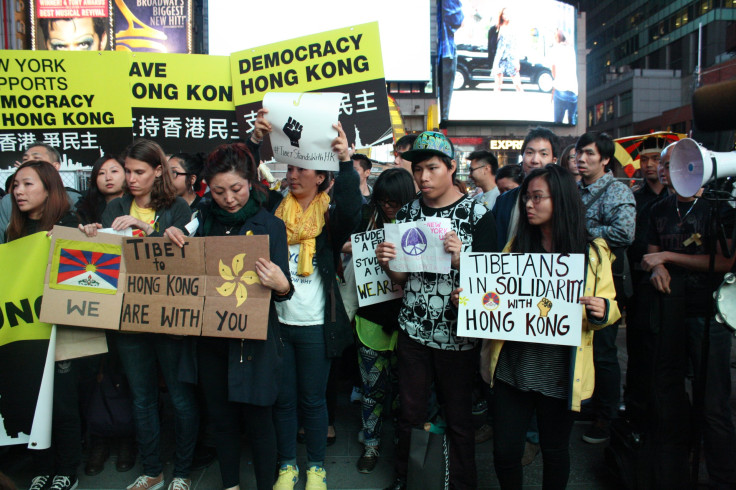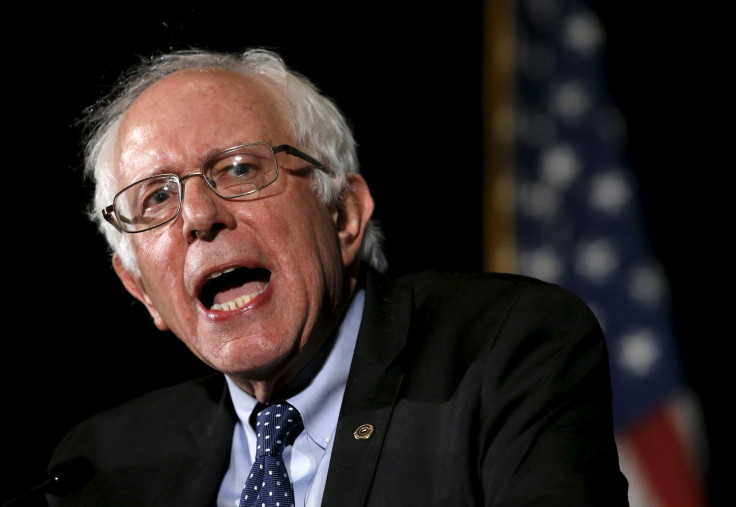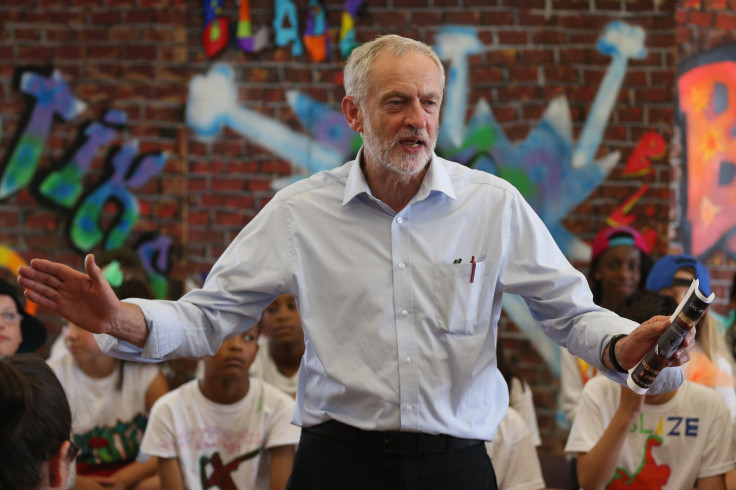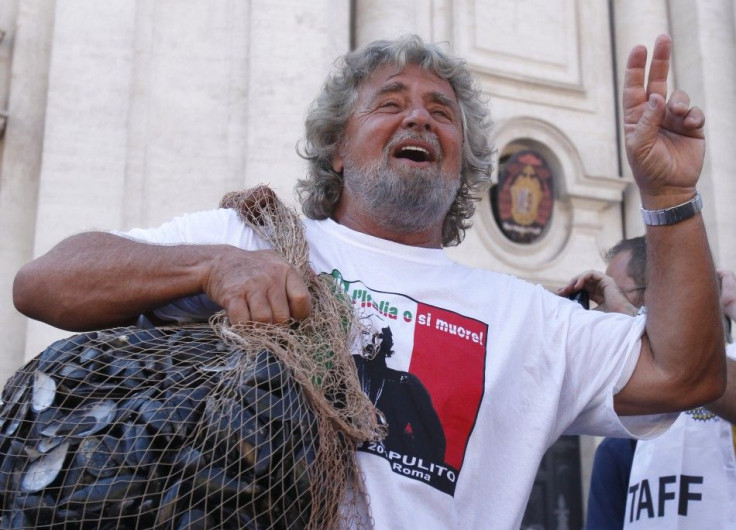Jeremy Corbyn In Britain, Bernie Sanders In America, The Left-Wing Firebrands Overturning Political Orthodoxy

When the Berlin Wall fell, it was widely believed that left-wing ideology crumbled with it. Aside from the obligatory Che Guevara poster on dorm room walls, socialism in the West was relegated to the annals of human history, along with flared pants and disco balls.
Social scientist Francis Fukuyama heralded this new era as “the end of history ... the universalization of Western liberal democracy as the final form of human government.”
But fashions have a habit of returning -- and whether it’s fundamentalism or facial hair, if something’s forgotten for long enough it can be rediscovered by people young enough to entertain it as a new idea.

Enter, stage left, Bernie Sanders and Jeremy Corbyn -- two white-haired, white men old enough to remember Russian-American hostilities from the first time around, who are shaking up the political scene in their respective countries -- Sanders as a U.S. Democratic presidential hopeful and Corbyn as a leadership candidate for Britain’s center-left Labour Party.
What’s startling is just how alike these two men are. Both are self-declared socialists, a term that’s been unpopular in the U.S. for almost a century and one that Tony Blair’s New Labour was eager to distance itself from. Both entered their respective races as marginal figures, with no hope -- or aspiration -- of winning, but with the intention of drawing attention to the issues they cared about.
Sanders of Vermont, while caucusing with the Democrats to organize the U.S. Senate, is the longest-serving independent in U.S. congressional history, favoring the kinds of generous social welfare policies more commonly found in Scandinavia.

Corbyn, meanwhile, has been a backbench critic of Labour leaders for more than 30 years as a member of Parliament and remains an active member of leftist British organizations including the Socialist Campaign Group, the Palestine Solidarity Campaign and the Stop the War coalition.
Both speak passionately on subjects that are passed over by more conventional candidates --inequalities of income, climate change, the self-interest of corporations and the corruption of governments.
Despite being old enough to claim their pensions, both men have garnered huge backing from the young, many of whom have never been involved in politics before. They’re reaching out to those typically alienated by mainstream politics -- and inspiring a cult following that most politicians would be salivating over.
Brilliant Private Eye front cover #Corbyn4Leader pic.twitter.com/WWgOdxDEBV
— David MacLean (@GeordieStory) August 18, 2015It’s not hard to understand the allure. In a fundraiser in a Chicago theater on Monday night, Sanders referred to the crowd as “brothers and sisters” and addressed common grievances of the Occupy movement generation.
"I find it very interesting that some kid who gets picked up for smoking marijuana can have an arrest record, but the crooks who destroyed our economy don't," he declared.
Across the Atlantic, two weeks earlier, at a rally in London, Corbyn told his fans, somewhat ironically, given his newfound fame, that he wanted to end "the politics of personal abuse and the politics of celebrity."
He told the crowd: "We don't pass by on the other side and leave the poorest to fend for themselves."
Corbyn’s and Sanders’ words are those of long-standing activists, but ones that resonate with a sizable proportion of today's public. As the British writer Howard Jacobson told the Independent newspaper, “You don’t have to believe the electorate secretly hankers for a dose of Marxist-Leninism to accept that there are deep levels of justified bitterness out there waiting to be tapped.”

“We couldn’t go on forever pretending that the coexistence of the soup kitchen and the banker’s bonus was just another of life’s unavoidable little cruelties. Once in a while we need the hard left to pipe up,” Jacobson wrote.
And the hard left are piping up -- not only in Britain and America, but across the world.
As ordinary people face the fallout from the global financial crisis -- cuts to vital services, pervasive job insecurity and mass unemployment -- they are voting for candidates that promise a radical departure from the centrist parties holding court.
Syriza in Greece and Podemos in Spain are two of the anti-establishment, anti-austerity parties that have benefited from this surge in left-wing thinking. Similarly, Jean-Luc Mélenchon, founder of France's Left Party, and comedian Beppe Grillo, who founded Italy’s Five Star Movement, launching “f--- off days” as a protest against the governing parties and winning a quarter of the popular vote in the parliamentary elections, have met with wide support -- in Syriza's case control of the government.

It’s not only voices from the left that are shouting to be heard among the rising rabble of dissenters and radicals -- new right-wing movements as well are presenting marginalized citizens with a vision of a world where they can wrest control from an elite that only has its own interests at heart.
From France’s Marine Le Pen to the Netherlands’ Geert Wilders to Britain’s Nigel Farage, Europe's far-right politicians are succeeding on the strength of their convictions -- something they share with their left-wing counterparts.
At a time when voters have never been more cynical about politicians, conviction carries weight.
It doesn’t matter that Sanders is unlikely to unseat Democratic front-runner Hillary Clinton or that Corbyn is deemed unelectable even by his own party -- what matters to those supporting them is that these men remain resolute in the pursuit of their ideals.
Critics may dismiss Corbyn and Sanders as the foolish remnants of a misbegotten world order, with fans too young to remember the systemic flaws that made them unsustainable, but for the fashionably bearded and flannel-shirted crowd that populate their rallies, vintage styles -- and vintage politics -- are back.
© Copyright IBTimes 2025. All rights reserved.






















